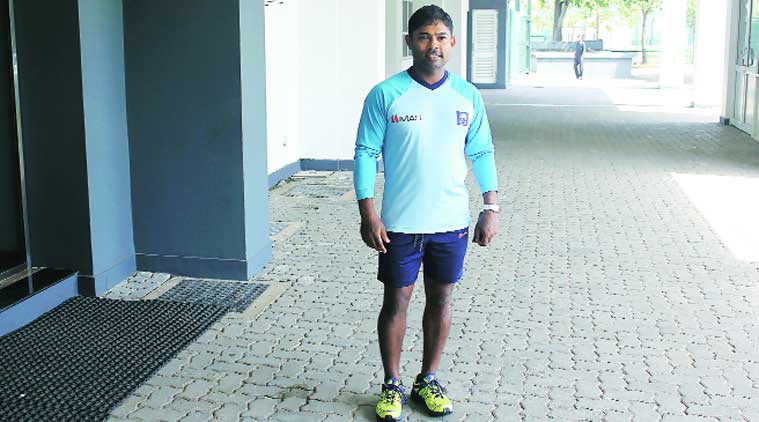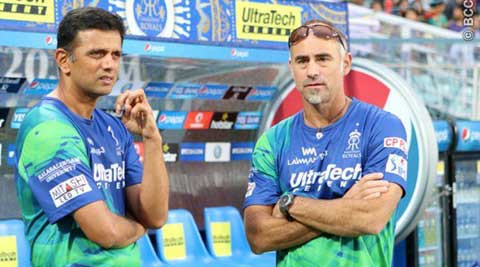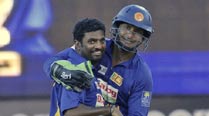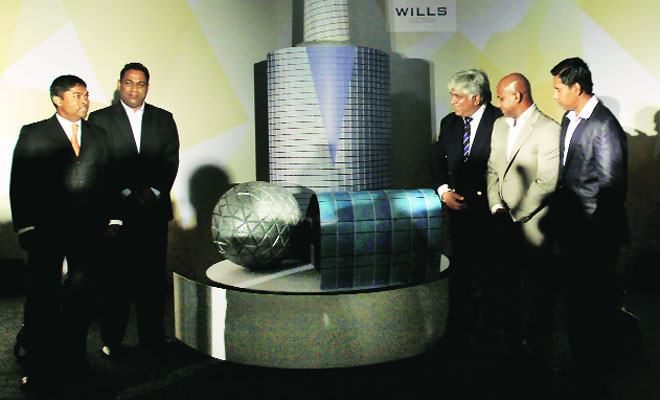Sanath Jayasuriya and I were pioneers, nowadays all batsmen are freaks: Romesh Kaluwitharana
 Former Sri Lanka wicketkeeper Romesh Kaluwitharana now runs a boutique hotel in Kalusare.
Former Sri Lanka wicketkeeper Romesh Kaluwitharana now runs a boutique hotel in Kalusare.
BEFORE T20 cricket, and long before batsmen started pressing on the fifth gear from the word go, there was Romesh Kaluwitharana setting the precedent. These days the diminutive former Sri Lankan wicket-keeper and World Cup winner is busy coaching the fringe players in the country. He speaks to The Indian Express about his transformation from being the face of unorthodoxy to preaching technique, the little Kalu image and running an eco-resort. Excerpts.
When you played cricket, you were a natural talent. You rarely followed the text-book. How do you deal with coaching youngsters these days?
We didn’t get much help from the coaches during our time. The mistakes we didn’t understand sometimes we were not told about. So I decided that I had to ensure the kids today don’t have to face it, and became a coach. If I had the kind of knowledge that I have today, I would have got a lot of runs. I could always see the ball well. Though people think technique doesn’t play a big role, it does. It keeps your batting, bowling or fielding very simple rather than being complicated.
 We will support Mumbai Indians today: Rahul Dravid
We will support Mumbai Indians today: Rahul Dravid Sri Lanka will be a force to reckon with at the 2015 World Cup: Muttiah Muralitharan
Sri Lanka will be a force to reckon with at the 2015 World Cup: Muttiah Muralitharan Class of '96 builds a partnership,to sell property
Class of '96 builds a partnership,to sell property- Munde files nomination for MCA elections
- ‘Sanath changed the face of ODIs’
- Samaraweera’s 214 helps Lanka to mammoth total
Did you consider yourself a freak talent?
I was looked at as one. That was around the time the 15-over rule was introduced. We used to see boring starts in ODIs, with teams happy with 30 or 35 on the board. Then Sanath (Jayasuriya) and I came on board and changed the game. The initial reaction was “What the hell is this?” and we were criticized. Now it has changed because everyone is doing it, scoring 300 for fun. But they’ve become too predictable. That is why I believe, while Sanath and I were exceptions then. Nowadays they are all freaks.
Do you regret that T20 came after your time was over?
I do actually because I never got to play T20 for Sri Lanka or the IPL. I am sure Sanath and I would have had a great chance to be picked in the top-bracket if put through an IPL auction. We after all were playing T20 cricket in the 50-over format. In hindsight we were making up for missing out on T20. (Laughs)
Tell us about batting with Sanath and your belligerent combination.
Sanath and I did one thing that was to play the natural cricket we knew, which was to dominate the bowler. Our defence was to attack. To a certain extent, we did succeed. One was left-hander, the other a right-hander. We both saw the ball early and we played all round the wicket. We were never scared of any bowling attack, and you’re talking some big fast bowlers back then. Unless one of us was doing something stupid, we never said anything. We only said, “Going is good. Let’s keep going like this.”
The perception was that we could win matches on our own. But that wasn’t true. Most of the people didn’t understand that time that we were a very good side. That gave us the license.
At what stage did you actually think you could win the 1996 World Cup?
Actually at the start, we never thought we would win the World Cup. We wanted to play one match at a time and make sure that slowly progress from first round to quarters. So we had no pressure. When we came to the semis, we were nervous. That was the time we started thinking, if we can do this can put Sri Lanka on the map. At that time, whenever we said Sri Lanka, people would ask “Are you also India?” That had to change.
What was the mood in the dressing-room after both you and Sanath got out in the first over caught at third-man?
Hundred-and-fifteen thousand people in the ground and 100,000 outside the ground. Playing India in India was something very loud. We had 10 people waving our Sri Lankan flag. But we could manage to reverse the energy. “We 11 against this 115,000,”was our motto. We had only each other. That was more encouraging than it was for India. They had lots to lose if they lost. But getting out and then losing Sanatah, was a terrible feeling because I felt the wicket was very good, and the Indians misread it.
You also got a century on Test debut, and then this. How did the popularity change your life?
I scored 132 not out in 150 balls with 26 fours and 2 sixes against Australia on Test debut. I was the 52nd player in history to do that. But I was dropped straightaway.
I remember when we played Test matches, we were not put up in hotels. We had to find our own transportation. For my debut, I came from home, made a Test hundred, went back, had home dinner and slept on my bed. Because I scored that ton, so many people came to see me at home. It was quite embarrassing, actually. Next morning, I remember when I was driving to the ground in my small car, people were waving from the buses and there was traffic.
What was the impact of the late Tony Greig on your life? He’s the one who turned you from Romesh to Little Kalu.
What happened is in 1995, when we toured Australia, we had a lot of issues, Murali’s issue was making headlines, and then from nowhere Sanath and I became the hot topic with our belligerent batting. The transformation was dramatic. In size, we both were small. We were playing against mighty West Indies and Australia and taking on Craig McDermott and Curtly Ambrose. Tony Greig saw that change and that’s the time he started backing Sri Lanka. And Little Kalu was born. It was almost like he loved saying it, and it did have a good ring to it. Many have tried to say it like him but failed.
Anyone still call you Little Kalu?
Some still do. Just to take the mickey out of me because I am not little anymore. My son is 16 now. In size I am still little so can’t blame anyone.
Where did the idea to start Kalu’s Hideaway come from?
About seven years ago I wanted to build a holiday home, but then I thought it was better to start a small boutique hotel. Especially because my place in Kalusare is about 10 minutes from the national park and about 7-8 minutes to the elephant orphanage. This is close to Yala. That’s the only elephant orphanage where they get all the wounded elephants and put them back to the jungle. I have only 14 rooms—that’s the size I like. After the war, the business is picking up. I was the pioneer to turn the area into a destination. My wife mainly takes care of it. A friend suggested that I name it Kalu’s but I wasn’t originally for it as I don’t like highlighting my name.
Don’t you get calls from the guests?
I have a gallery there with a lot of memorabilia, from the 1996 World Cup mainly. Mainly a lot of Englishmen and Australians come there, and I get calls asking for Little Kalu, and I just laugh out.
Are you enjoying being out of a corporate office and on the field again?
Throughout my career, I always worked. I started with Navaloka for seven years, then I joined ATE Lanka, that is a freight forwarding company, and then I went to Austasia, that is indoor cricket we introduced to Sri Lanka and then I went to Sri Lanka Insurance. Then I came to coaching. For now, I am happy to be wearing shorts to work again.





